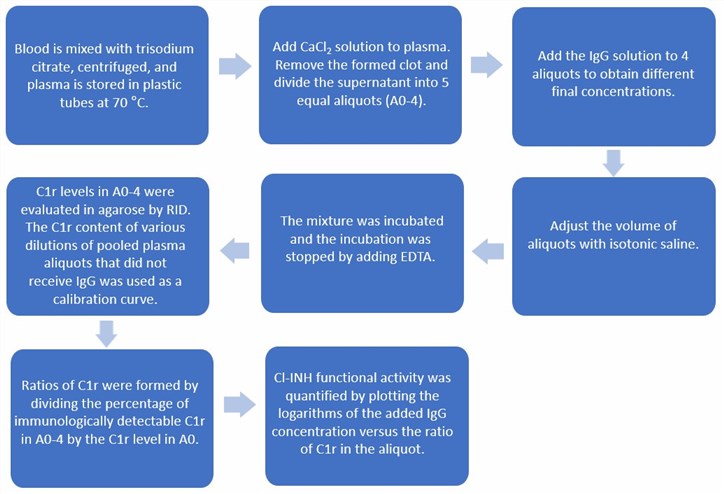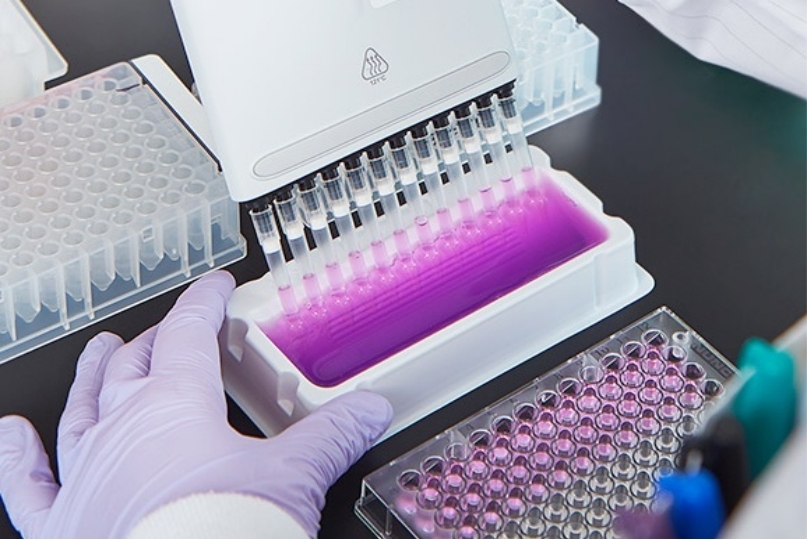C1 inhibitor (C1-INH) is a common plasma protein that plays a crucial role in different inflammatory and coagulation pathways by inhibiting proteases of the coagulation system and the complement system. C1-INH consists of two distinct domains, a C-terminal and an N-terminal domain. Interrogation of the complement system function can be performed by different strategies such as radial immunodiffusion (RID) hemolytic assays, liposome lysis and enzyme-linked immunosorbent assay (ELISA). RID hemolytic assays are based on the ability of complement to induce the lysis of red blood cells (RBC). These analyses formed the initial approach to complement testing. As a leader in the field of complement research, Creative Biolabs is willing to share the technology and expertise related to complement detection.
RID-Based C1-INH Quantitative Determination
Here, we describe a simple procedure for the quantitative determination of C1-INH.
 Fig.1 Flow chart of quantitative determination of C1-INH. (Creative Biolabs)
Fig.1 Flow chart of quantitative determination of C1-INH. (Creative Biolabs)
Advantages of RID Assays
-
This is a simple and general approach.
-
Does not require complicated instruments.
-
The test requires a small amount of sample.
-
Easily detect functional C1-INH in serum.
Creative Biolabs is a company providing leading services and products in the field of complement research. We have a full range of high-quality products such as antibodies, proteins, aptamers and kits. In addition, our customized services cover all aspects of the field of complement research, from complement antibody development to complement function testing. With our integrated global resources, our services and products will provide you with a cutting-edge platform to power your complement research projects.
Services and Product at Creative Biolabs
If you are interested in our complement services or products, please contact us by email, and our team will reply to you as soon as possible. Please note that our protocols are only for your reference!
For Research Use Only.
Related Sections:

 Fig.1 Flow chart of quantitative determination of C1-INH. (Creative Biolabs)
Fig.1 Flow chart of quantitative determination of C1-INH. (Creative Biolabs)

